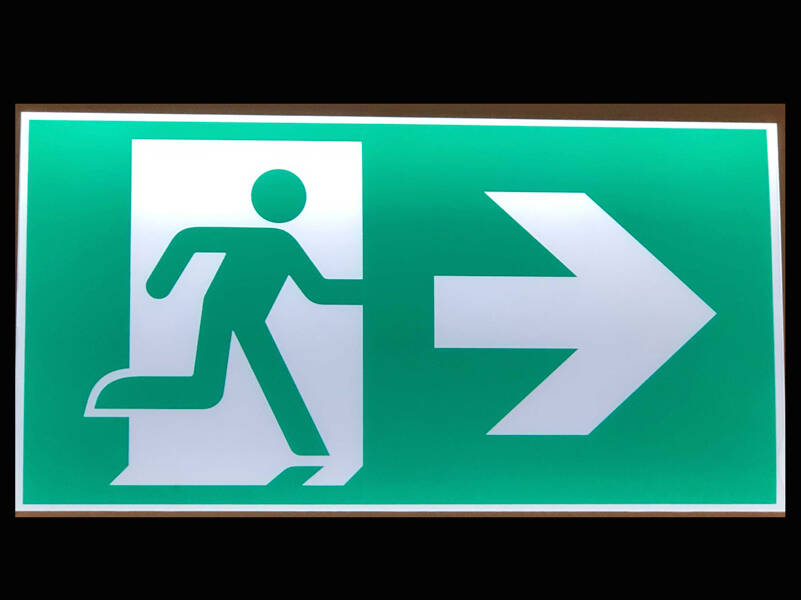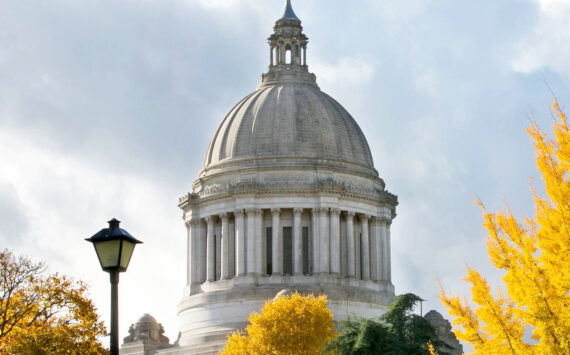By Morf Morford
Tacoma Daily Index
Making sense of our times might be the task of every generation, but for a variety of reasons, this era is one that few of us are coping with or are even close to comprehending.
The term “new normal” has largely evaporated from public conversation – perhaps because more and more of us are realizing that there is no “normal” – no stable set of rules or realities we can all (or at least most of us) take for granted after this particular season of changes.
We have lost, perhaps most of all, a consensus of a sense of who we are as a nation and as a culture.
Most of us who are adults lived most, if not all of our lives in the bright, reassuring light of the longest period of global American economic and cultural supremacy.
One prominent historian even wrote an essay with the premise that we were at “the end of history” with the dominance of liberal democracy and the arrival of a post-ideological (even post-racial) world.
You can see a recent review of how well that particular view has aged over the past 25 years here: https://www.theguardian.com/books/2014/mar/21/bring-back-ideology-fukuyama-end-history-25-years-on.
To put it mildly, it doesn’t feel like we are at the “end” or “post” of anything.
Or maybe we are at the “end” or “post” of everything.
Every era, from fashions to politics, frames its identity over time.
Our era is coalescing around us at record speed, and in real time.
In politics and music for example, the momentum has been building for many years now – where else would we find near-purely distilled cynicism, and a sense of dystopian, disoriented, unmoored dread and distrust.
And our adversaries evaporated the closer we looked at them.
Instead of wars against a specific nation or ideology, with clearly defined borders and front lines, we had a vague “war on terror” with threats anywhere or any time. Within our borders we had an equally vague “war on drugs” with equally vague intentions, definitions or parameters.
These “wars” on concepts, beside being indefinable (who is the “enemy” in a war on drugs? What would “victory” look like?) were also un-winnable.
When, for example, are any of these wars over?
Here in the 2020s we find ourselves under siege by hordes of global, anonymous, invisible threats which impact our supply lines, our mental health, our markets and our identity.
The America I grew up in was the America that could do, or fix or rescue anyone from anything.
Aliens, microbes, zombies or thickly accented evil-doers were no match for American resolve and ingenuity.
But, as the saying goes, that was then…..
In every arena we find ourselves at a crossroads.
On a personal level, our friendships have been dislocated and reordered.
On a national level, technology has facilitated if not accelerated a complete breakdown in trust of institutions, from business and employment to churches or government representatives that once served to keep us together.
The war in Ukraine has exposed the fragility of the formerly agreed-upon rules-based international order.
Meanwhile, the collective reluctant action to fight the climate crisis has deepened instability and thrown into doubt the idea that we can avoid dire consequences.
When it comes to climate change, many have taken a direct route from denial to despair – either way doing or demanding nothing from those who could make a long term difference.
We used to be described as living in a “post” world – postwar, postindustrial, post-modern, post-colonial or post-racial.
In other words, we are in a world “after” – after everything it seems.
Remember the early days of COVID?
Those days when we celebrated health care workers as heroes and urged those we barely knew to take care of themselves?
And then “mandates” became a litmus test for friendships and business. And fodder for political campaigns.
As a result, many of us experienced fraying personal relationships, with the same dynamic at work, if not exaggerated, on a national level.
Consider the Edelman Trust Barometer. The public relations firm has been conducting an annual global survey measuring public confidence in institutions since 2000.
Its 2022 report (https://www.edelman.com/sites/g/files/aatuss191/files/2022-01/2022%20Edelman%20Trust%20Barometer%20FINAL_Jan25.pdf) found that distrust is now “society’s default emotion,” and recorded a trend of collapsing faith in institutions such as government or media.
And, as we can see from too many news anchors or personal conversations, civic trust, the foundation of nation-building, believing that governments are capable of improving one’s life has almost entirely evaporated.
Oddly enough, the place we see core “American” values expressed is Ukraine.
Where else could we see freedom, openness, transparency, and national pride and unified resistance on public display?
But somehow, instead of cheering our own beliefs going global, we find headlines like this “The risk of Armageddon has risen dramatically” (https://twitter.com/RobinWigg/status/1500059906568826882).
The bottom line is that we are not “post” anything.
We are in a set of situations we have never seen before.
We can’t afford denial and we can’t afford despair.
We can only get to work and remember what we care about. And who we are.
Markets hate uncertainty. And it turns out that most of us aren’t too wild about it either.
This is not your father’s economy – or political system.
And I’m not sure it’s ours either.
But it certainly will be our children’s.
When it comes to climate change, our markets (and supply chains) and our political institutions, we need to reclaim the basic principle of the Boy Scouts; to leave it better than we found it.






